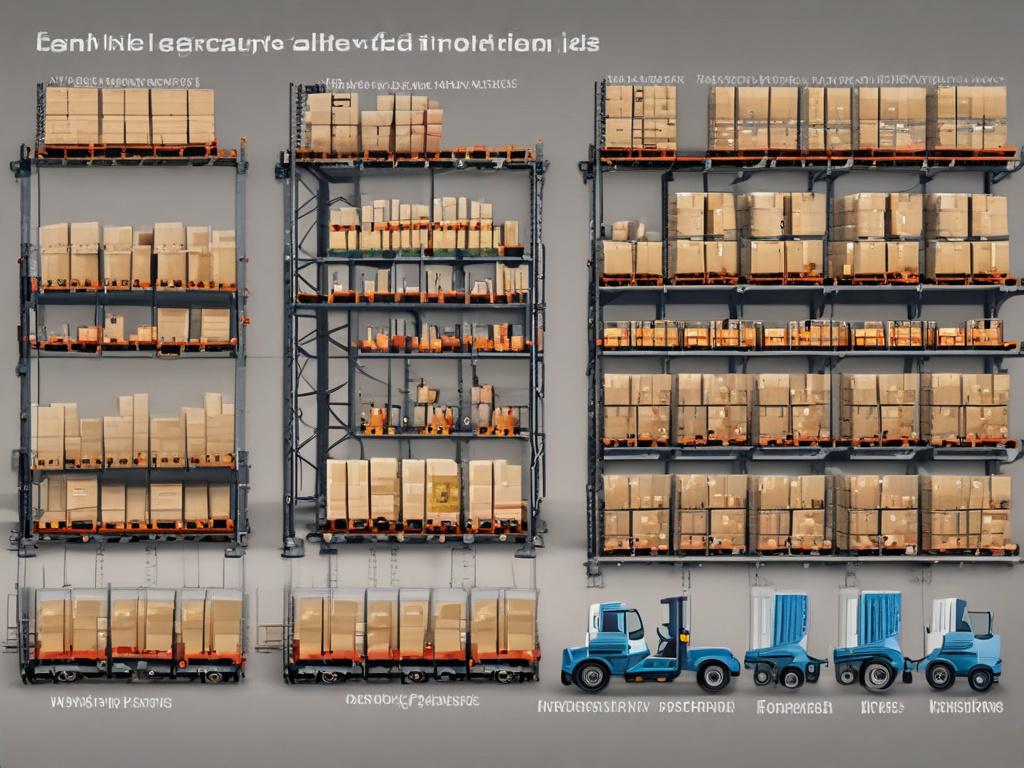
Understanding the various types of warehousing services is crucial for businesses aiming to optimize their supply chain operations. From traditional storage options to advanced fulfillment centers, each kind of warehousing service offers unique features and benefits tailored to different needs. As e-commerce continues to grow and consumer expectations evolve, companies must stay informed about the available warehousing solutions to ensure they can meet demand efficiently.
This blog post will explore the various warehousing services available, highlighting their key features and benefits. Whether you are a small business looking to streamline operations or a large corporation seeking to enhance distribution processes, understanding these services will empower you to make informed decisions.
Warehousing services play a crucial role in supply chain management, providing businesses with various options to optimize storage and distribution. The primary types of warehousing include public, private, distribution, and fulfillment centers, each catering to specific business needs. Public warehouses offer flexible space to multiple clients, making them ideal for businesses looking to minimize overhead costs. Private warehouses, on the other hand, are owned and operated by a single company, allowing for customized storage solutions that align closely with operational requirements. Distribution centers focus on efficient storage and rapid product turnover, while fulfillment centers specialize in order processing and shipping, particularly for e-commerce businesses.
Understanding these types of warehousing services is essential for any business aiming to streamline its logistics. Each warehousing option has distinct advantages and serves different purposes. Public warehouses often provide flexibility and lower costs for seasonal or fluctuating demands, while private warehouses offer control over inventory management and operations. Distribution centers excel in managing high volumes of goods with swift handling, which is vital for meeting customer expectations. Fulfillment centers, with their automated processes and technology integration, enhance order accuracy and speed.
Different types of warehousing services cater to the varying needs and business models of various industries. Private warehouses offer complete control over storage and distribution. Businesses can customize operations, leading to improved efficiency and reduced costs. On the other hand, public warehouses provide flexibility, allowing companies to rent space on an as-needed basis. This option suits businesses that experience seasonal demand fluctuations or are entering new markets without committing to long-term leases. Consolidated warehouses serve customers who seek to combine inventory from multiple suppliers, taking advantage of bulk shipping and lower transportation costs, ultimately enhancing their bottom line.
In addition to these options, specialized warehousing services such as temperature-controlled and bonded warehouses cater to niche markets. Temperature-controlled facilities maintain specific climates for perishable goods, ensuring product integrity and compliance with regulations. Bonded warehouses, meanwhile, hold imported goods until duties are paid, allowing businesses to manage cash flow effectively. Each type of warehousing service offers unique advantages, helping companies streamline operations, reduce costs, and optimize their supply chain strategy. Understanding these features can significantly enhance a business's ability to make informed decisions when selecting a warehousing service tailored to its specific requirements.
Selecting the appropriate warehousing service for your business requires careful consideration of your specific needs and goals. Start by assessing the nature of your products, their storage requirements, and the volume of inventory you manage. For instance, if you deal with perishable goods, a temperature-controlled warehouse will be essential. On the other hand, businesses with large quantities of non-perishable items might benefit from bulk storage warehousing. Understand your supply chain dynamics and evaluate how each warehousing option can streamline operations, reduce costs, and enhance customer satisfaction.
Additionally, evaluate the flexibility and scalability of the warehousing services you are considering. As your business grows or changes, your warehousing needs may evolve. Look for providers that offer customizable solutions, such as on-demand storage options or the ability to integrate fulfillment services. Consider the technological capabilities of the warehousing facility, including inventory management systems and tracking technologies, which can provide visibility and improve efficiency.
If you are searching for top-grade warehouse, logistics, and fulfillment services, request a quote from our team at SML Fulfillment to get started.